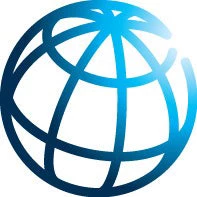In a world where many wealthier countries still don’t make government data easily accessible and usable by the public, Kenya and Moldova are on the cutting edge.
In the last six months, the two countries have bucked a history or perception of obfuscation to launch open data websites – where budget and census information, for example, is easily visualized and downloaded.
This month, open data experts took a close look at these ground-breaking initiatives for tips on the best ways to help developing countries like Mongolia, Nigeria and Rwanda move toward more open government.
And they pointed to a new Open Government Data Community of Practice on the networking website LinkedIn to connect governments and open data experts. The community group was launched September 28 jointly by the World Bank and the World Wide Web Foundation.
The World Bank opened much of its data to the public more than a year ago as part of an effort to increase access to information and encourage innovators to develop software solutions to development problems. The World Wide Web Foundation’s goals include making the Web accessible to all people and assisting other organizations to leverage Web technologies.
The purpose of the community of practice is to help countries with their open data initiatives and to document what works, and what doesn’t, said Jose Manuel Alonso, program manager of open data for the foundation.
“This is the start of a conversation about how to support this work going forward,” said Neil Fantom, the lead on the World Bank’s Open Data Initiative, at an October 3 event organized by the World Wide Web Foundation and the World Bank.
Open Data Efforts Need a Government ‘Champion’
The event contrasted the open-data experience in Kenya and Moldova. Newly available Census data accelerated the creation of Kenya’s open data website; the country is now looking at how to build the policy and institutional framework to maintain the data supply. In Moldova, the open data website was part of a broader e-government program.
But both initiatives, which launched July 8 and April 20, respectively, came to fruition largely because key figures in the government pushed strongly for them, said World Bank staff that assisted the efforts.
In Kenya, the permanent secretary of information communications technology (ICT) believed in making data accessible and was willing to take on personal risk to make it happen, said Country Director Johannes Zutt.
The project moved swiftly once the secretary obtained 2009 Census data in electronic format. The World Bank helped the government curate the data, and the portal’s 350 data sets now include data on public expenditures, poverty, and schools.
Christopher Finch, a senior World Bank social development specialist in Kenya, said government officials are motivated by the ICT sector’s growing demand for data, and the realization that data and ICT are a source of jobs and a path to a higher income.
In addition, “the presence of a global open data community was an essential component,” said Finch. “There is a realization in Kenya that they’re connected to something bigger.”
Creating a Sustainable Data Pipeline
In the same way, open data websites should be part of a larger effort to make government more transparent, said participants. In Moldova, the portal itself is “just the tip of the iceberg,” says Oleg Petrov, team lead on the Bank’s Moldova Governance eTransformation Project. “There’s a huge amount of work that isn’t visible.”
That includes a lot of time spent socializing open data among agencies that are critical in sustaining the portal, said Jeff Kaplan, a consultant in the Bank’s ICT unit. “Don’t waste time fighting resistance among agencies – find the movers and work with them first.”
“You can only do open data if you’ve got data to open up,” said World Bank Open Data Evangelist Tariq Khokhar. Supporting capacity building and the curating of data are essential, he said.
The Moldova open data website-- the first in the region – launched with 67 data sets from five agencies, with each agency providing a minimum of three data sets per month to create a pipeline of data, said Kaplan. The number of data sets increased to 250 over five months and cover full public disclosure of expenditures.
The effort is potentially “hugely transformational,” but difficult to do and get right, said World Bank Moldova Country Director Martin Raiser.
“We need to pool expertise,” said Aleem Walji, innovation practice manager for the World Bank Institute. The open data community is at the edge of a “huge opportunity” to help governments open up in a powerful way, he said.
For more information, please visit the following links:


Join the Conversation